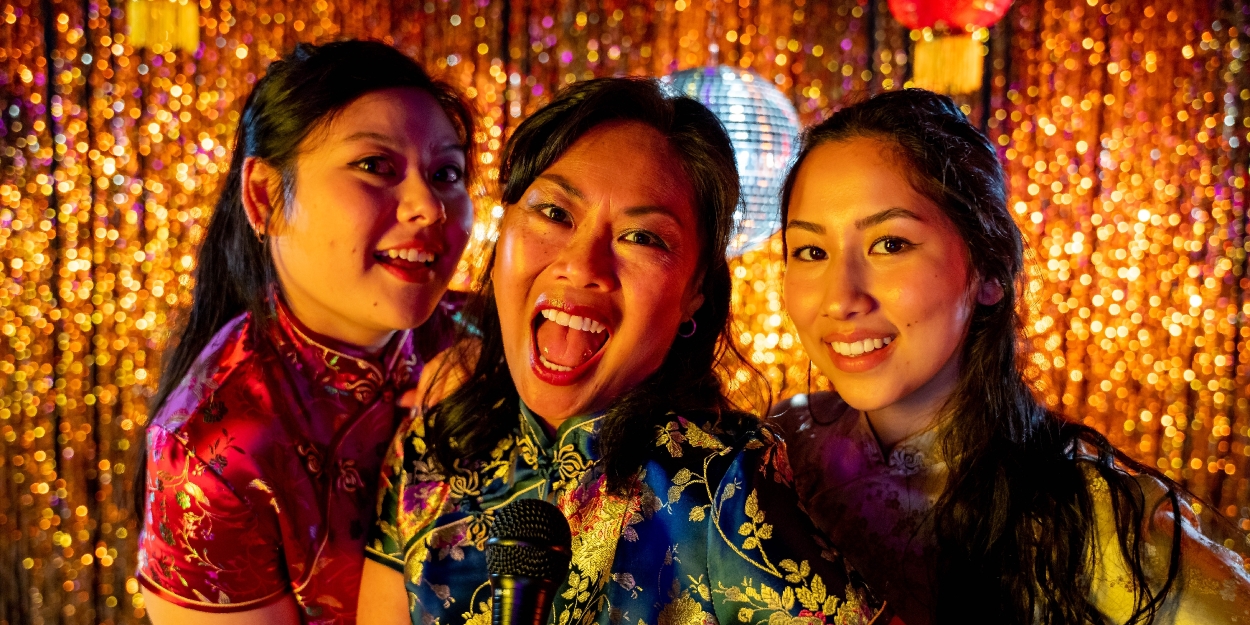Review: SINGLE ASIAN FEMALE at Dunstan Playhouse, Adelaide Festival Centre
A look at the experiences of Asians in Australia.

Reviewed by Barry Lenny, Tuesday 8th November 2022.
The State Theatre Company of South Australia is presenting Michelle Law's play, Single Asian Female, the first two preview performances having appeared as part of the OzAsia Festival. Originally scheduled for the 2020 season, it was a COVID casualty.
Director, Nescha Jelk, has recruited six very fine performers and created some strong interactions between their characters. Billed as a comedy, though, there is more drama than laughs in the script and she has worked to bring out both.
In Nambour, on Queensland's Sunshine Coast, the women of the Wong family, mother, Pearl, and daughters, teenage Mei, and her older sister, Zoe, are together in Pearl's Chinese restaurant, The Golden Phoenix. We join them at the end of the day, with the last customers gone. Pearl came to Australia with her husband, but her two daughters were born and grew up in Australia. There is not only an age gap, but also a cultural gap for them to negotiate.
As the performance begins, Pearl is celebrating the finalisation of her divorce from her mentally and physically abusive, tax-avoiding husband, by singing karaoke; I Will Survive. In a monologue, she provides some background and sets the scene for what is to come.
Mei lives with Pearl, and she is finishing her high school education, studying for some final exams, and with the school formal looming large. She is trying to deny her cultural background in order to fit in. As she goes through her possessions, discarding anything Asian, it's a case of 'Goodbye Kitty'.
Zoe is unhappy, as Pearl is selling the Brisbane apartment in which she has been living, forcing her to return to the restaurant in Nambour. Mei is also unhappy, as she is now expected to share her room. This is a source of tension between the sisters.
Zoe, a talented violinist, unsuccessfully seeking work in an orchestra, has tried dating, worried that she is still single in her mid-twenties. In a flashback, she encounters a string of dreadful male stereotypes who treat her as an Asian stereotype, until she meets Paul. He treats her as an individual, they get along well, and they go for 'dinner' at his place. The toxic male losers, who made us laugh, and cringe, are all cleverly played by Kathryn Adams and Kristen O'Dwyer, in assorted wigs and costumes, making quick changes.
Fiona Choi plays Pearl, the matriarch, restaurateur, and the family's rock, trying hard to hold her life and world together, and harbouring a secret that she knows that she must share with her daughters. Choi is a powerhouse in the role from her singing, to her emotional range.
Rising star, Juanita Navas-Nguyen, plays Zoe, who has a secret of her own, one that she intends to keep from her mother. Her performance confirms that she is somebody to watch as her career develops.
Mei is played by Elvy-Lee Quici, in her first main-stage role, bringing out all of the required teenage angst, and considerable petulance. She neatly develops the growth in the maturity of her character as secrets are revealed and responsibility becomes unavoidable.
Kathryn Adams plays Lana, who pretends to be Mei's friend, but is, in fact, a nasty piece of work, whose intention is to destroy Mei, socially. Adams carefully creates a character who can look down her nose and make disparaging remarks, while smiling sweetly and innocently at Mei.
Kristen O'Dwyer, on the other hand, is Mei's best friend, Katie, fascinated by modern Asian culture, and dressing in cosplay, like a character from one of the Ghibli anime films that she and Mei watch together. O'Dwyer is a bundle of energy in the role, contributes plenty of laughs, and she can certainly belt out a song.
Allan Lyra Chang plays the minor role of Paul, an immigration lawyer, presenting a warm and intelligent young man who becomes a very helpful friend, after that brief encounter with Zoe.
Ailsa Paterson's set is impressively elaborate, with the restaurant filling the major, central portion, a storeroom, and stairs to the right, and the toilet to the left, with two bedrooms upstairs. She is also responsible for the wide-ranging costuming. It is all lit most effectively by Chris Petridis. Andrew Horwood provided the music and sound design, although I found the electronic percussive scene change music a little too loud, particularly as there were quite a few long, slow scene changes that interrupted the action. It actually looked rather like a television script, trying to be a stage play.
The play covers a great many issues, perhaps trying to delve into too many, and, at two and a half hours, including the interval, it is rather long. Some judicious editing would not go astray. Overall, though, there were six very fine performances to enjoy, and the various conflicts and problems were all, with a touch of deus ex machina, neatly resolved into somewhat contrived happy endings for everybody.
Photography, Matt Byrne.
Reader Reviews

Videos

